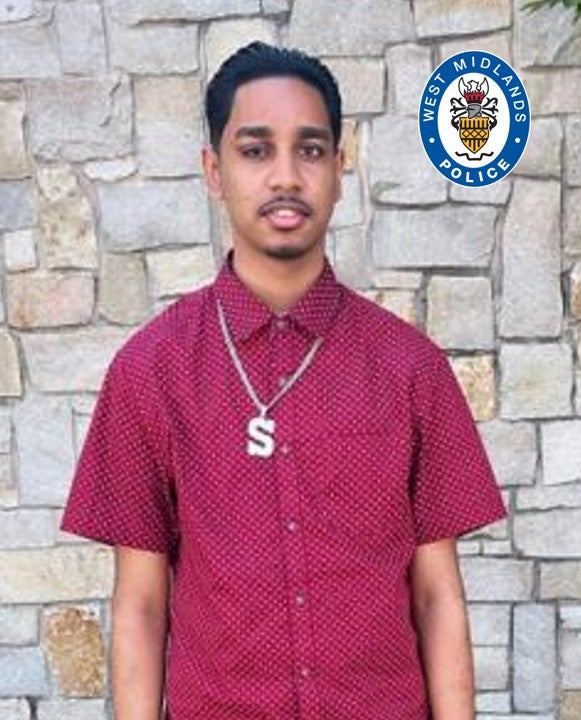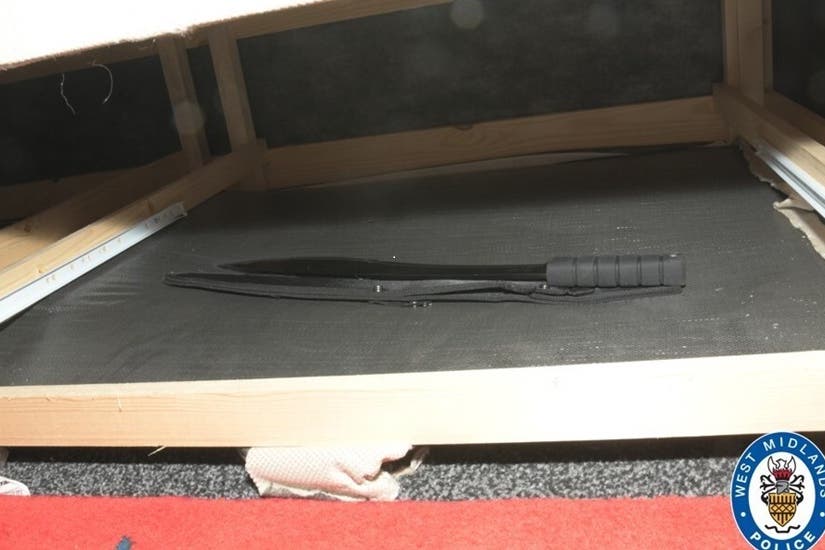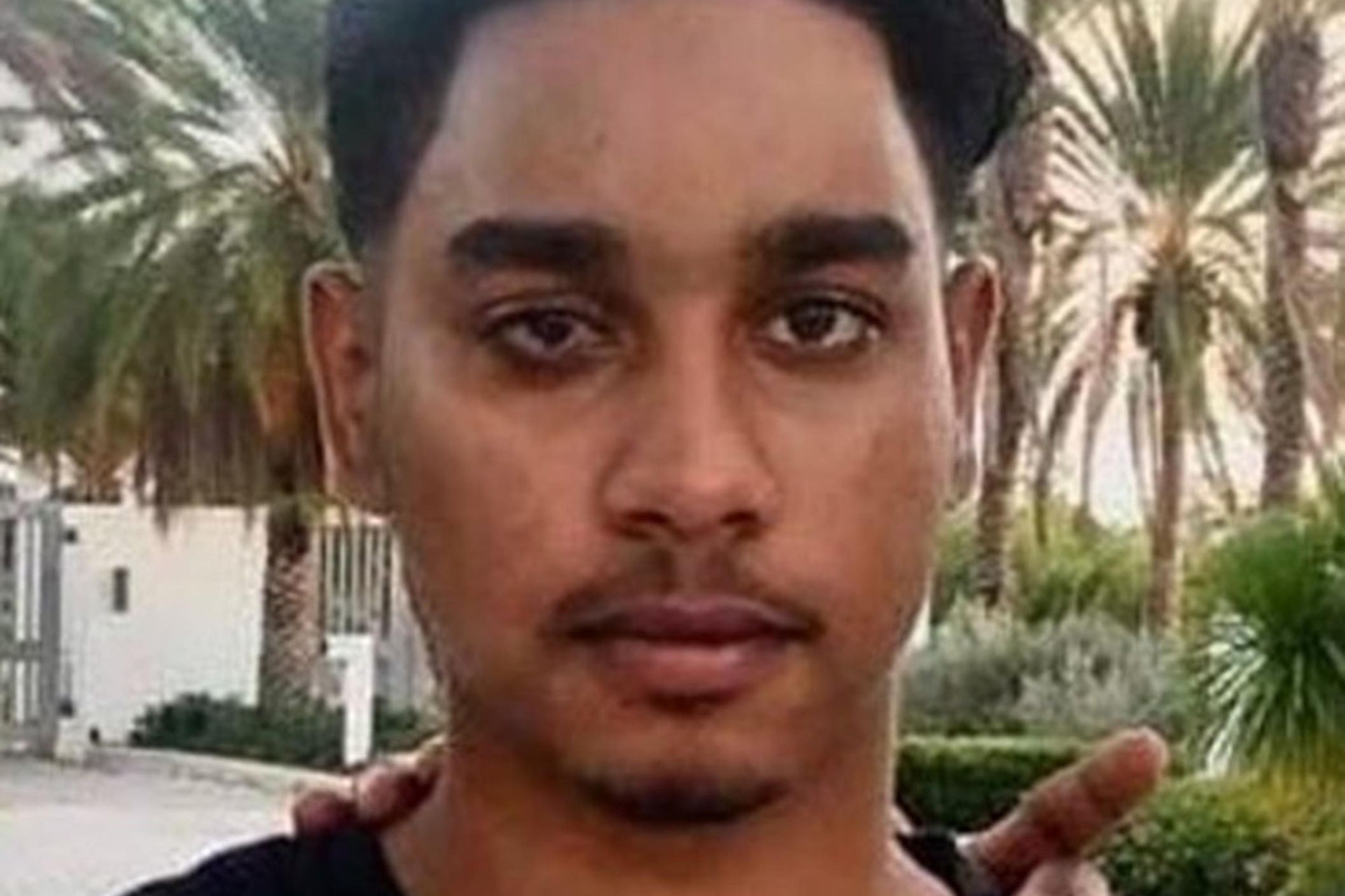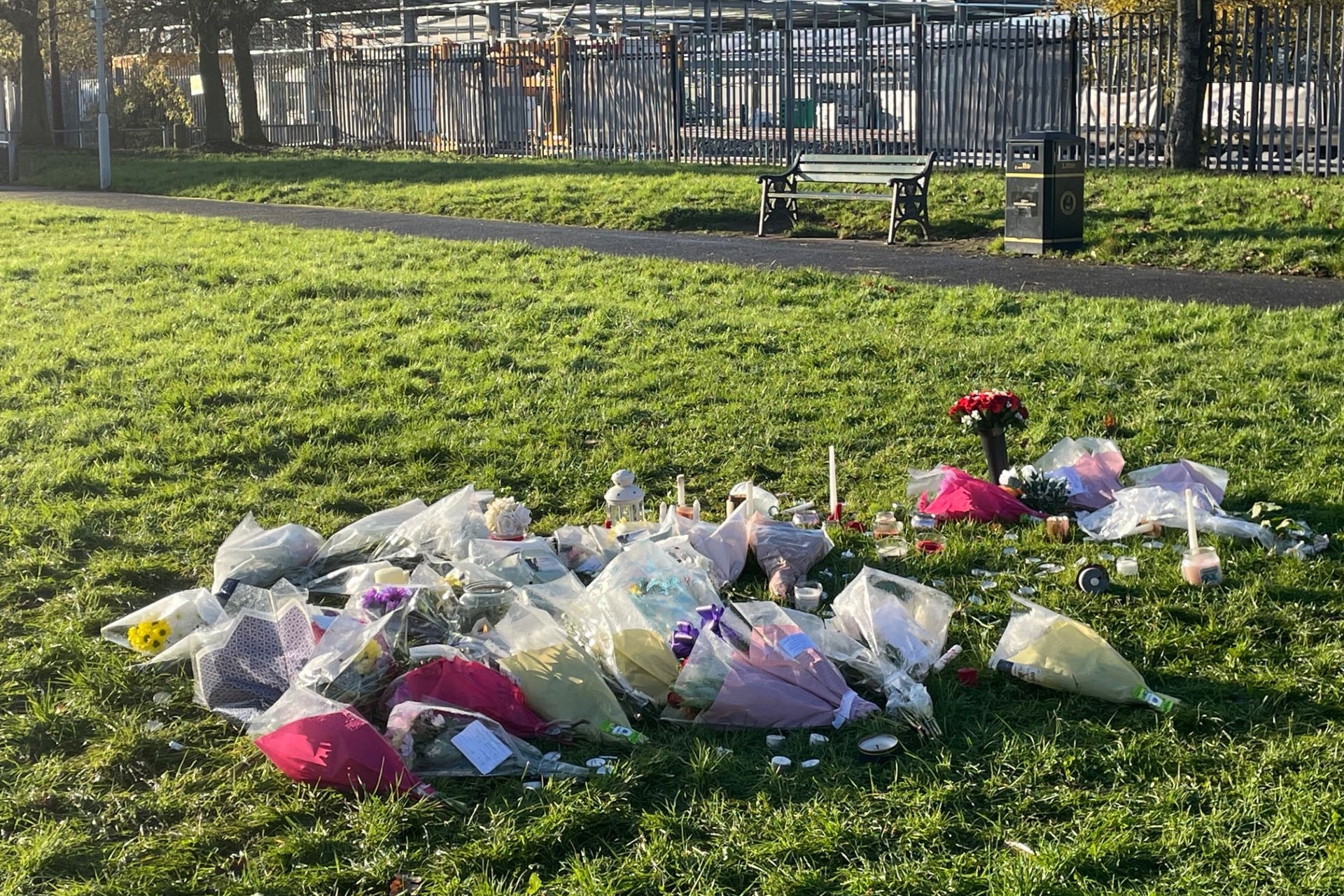Chilling social media messages 12-year-old killer sent his girlfriend after machete murder
Jurors who convicted two 12-year-old boys of killing Shawn Seesahai were told neither of them had any previous convictions, cautions or reprimands

A 12-year-old found guilty of murdering a stranger with a machete texted a girl to say he ‘did not really care’ after the random killing.
The boy, convicted by a jury on Monday alongside his co-accused of the same age, attacked and killed 19 year-old victim Shawn Seesahai in a park in Wolverhampton last November. They are believed to be the youngest defendants convicted of murder in Britain since Robert Thompson and Jon Venables, both aged 11, were found guilty in 1993 of killing James Bulger.
Jurors heard one of the youths had an obsession with knives – even posing for a snap with his machete tucked into the top of his trousers hours before he committed murder. The picture sent from the youth’s mobile phone, showing him masked near railings in the street, is believed to have been taken at around 1am.

The image was forwarded to the boy’s girlfriend and his co-defendant with rapper SJ’s Prison Freestyle track attached to it, the trial heard.
During the youth’s evidence to the court, he claimed he had accidentally attached the song to the photo and denied knowing SJ’s real name or that the singer is currently serving life for a machete murder committed in Wood Green, London, in 2019.
The boy was also asked by prosecutor Michelle Heeley KC to demonstrate to jurors how he concealed the murder weapon, which had a 42.5cm-long blade, inside his left trouser leg.
In the hours after the murder, on Wolverhampton’s Stowlawn playing fields, the same youth – who admitted unlawful possession of the machete but denied any other wrongdoing – was given a lift home by a family member, bleached his machete and hid it under his bed.
In social media exchanges involving his co-defendant and a girl witness who later attended a police station with her mother to make a statement, the boy said of the stabbing: “It is what it is.”
After going to his home to arrest the boy on the night after the killing, police found him in the lounge watching television.

He was then given a formal caution advising him of his rights by a detective constable and responded: “What murder? Why would I kill someone?” and “I haven’t done anything.”
Both defendants wore a shirt and tie to give their evidence accompanied by intermediaries, having been allowed to sit in the well of the court near relatives rather than in the dock.
Court sessions were shortened during the trial to mirror school lessons, a small courtroom was chosen so they would not be intimidated by their surroundings and they were given permission to use so-called fidget aids to calm their nerves.
The youth who owned the black-bladed machete – which he said he bought from someone he would not name for £40 – was incriminated by his heavily bloodstained clothing and manbag.
His hoodie – found by police inside out and mixed in with other clothes in a washing basket – was bloodstained on the front of the right sleeve, the front and back of the left sleeve, the right chest and the lower left front.
A small amount of blood was also found on the inside of the right cuff, while a sample of the blood from the right sleeve, which in the opinion of a forensic scientist was caused by contact with a blood wet object, was submitted for DNA profiling.

A complete DNA profile matching that of Mr Seesahai was obtained from the sample, meaning it was one billion times more likely the blood originated from the victim rather than an unknown unrelated person.
Similar tests were also conducted on the boy’s jogging bottoms after areas of bloodstaining, including areas of light contact bloodstaining, were present on the upper left front.
A small heavy bloodstain was present on the left calf area, and “light contact bloodstaining” was present on the inside front of the waistband and on the inside of the left pocket.
There were a number of small spots of blood on the upper right front which, in the opinion of the forensic scientist, were caused when airborne droplets of blood landed on this area of the joggers.
One of the spots of blood was submitted for DNA profiling and was found to match Mr Seesahai.
Defence lawyers in the trial did not dispute the opinion of a forensic scientist that the stains on the clothing were “in keeping with the items being in contact with and in close proximity to a source of Shawn Seesahai’s blood such as Shawn Seesahai when he was bleeding”.
Bloodstaining was also found on the murder weapon – which had a 6cm-wide blade near its tip – and swabs taken from the manbag also matched Mr Seesahai’s DNA.
The dude took it out of its sheath. We started to run but Shawn tripped. I was running for my life - I couldn't stay there and watch
Forensic tests were also carried out on the clothing of the other defendant, seized from a bedroom washing basket after his arrest around 25 hours after the stabbing.
No blood and no DNA matching Mr Seesahai were found on the clothing or the boy’s left trainer, but a small ill-defined bloodstain measuring 3mm by 5mm was found on the front of the right trainer, matching Mr Seesahai.
Witness evidence from a teenage girl who knew the boys and Mr Seesahai’s friend Derron Harrigan also helped to convict the boys.
In evidence to the trial via a video link, Mr Harrigan said he and Mr Seesahai were threatened shortly after sitting on a bench, where they had been discussing their plans for Christmas.
After shoulder-barging Mr Seesahai, Mr Harrigan said the shorter youth “reached for his blade and Shawn shouted ‘run bro'”.
“The dude took it out of its sheath,” the witness told the court. “We started to run but Shawn tripped. I was running for my life – I couldn’t stay there and watch.”
Neither boy has any previous convictions, cautions or reprimands, but police said after the case that the youth who hid the murder weapon had been “dealt with” previously in relation to an incident of theft not related to knives.
